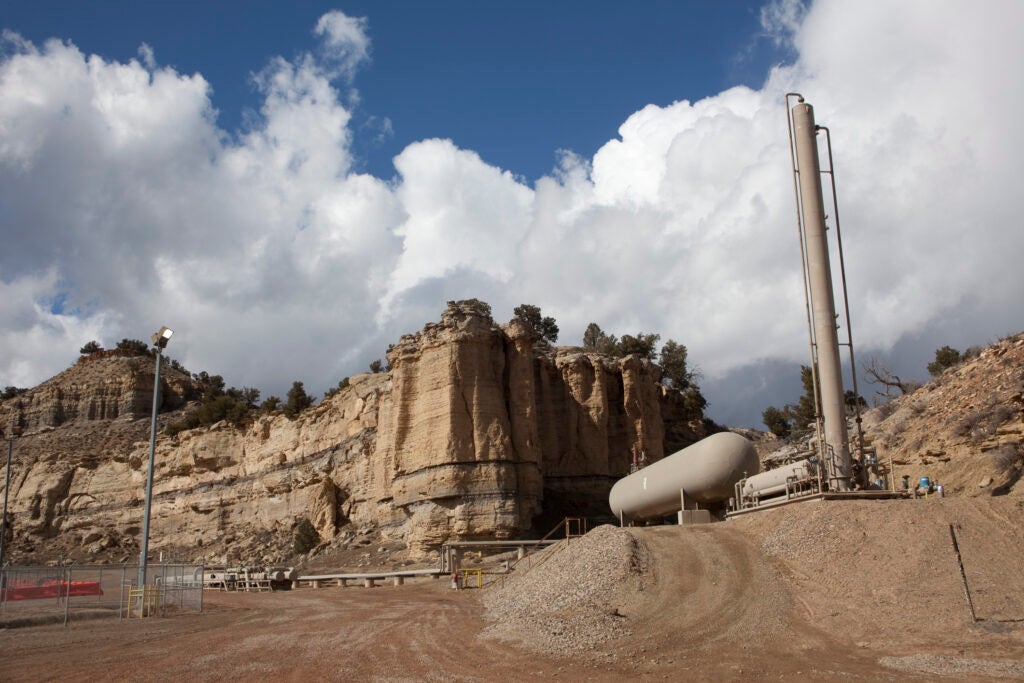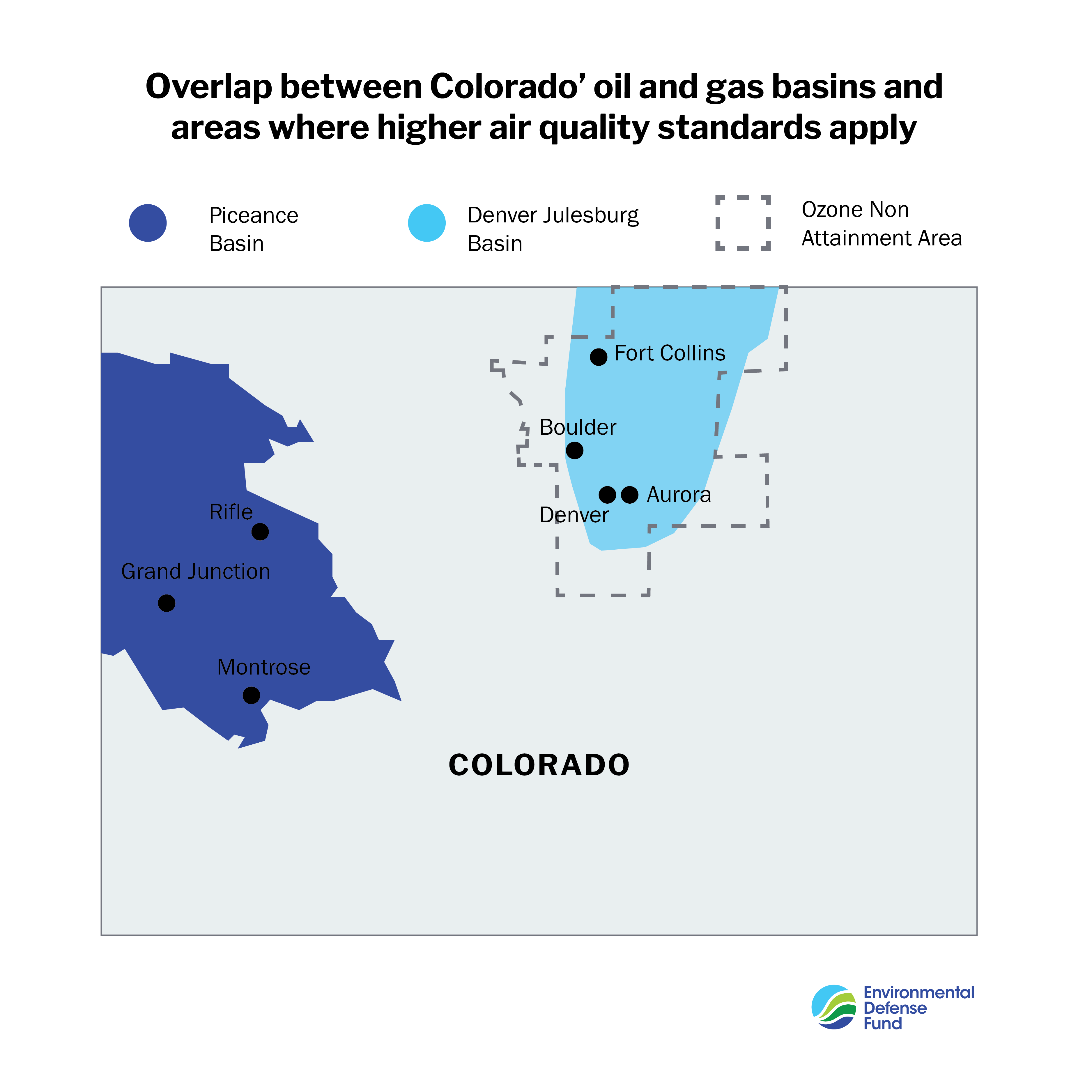Colorado needs a rule strong enough for more than 60,000 miles of pipelines
By Nini Gu & Magdalen Sullivan
- The Colorado PUC is developing advanced leak detection & repair standards for pipelines – they should adopt comprehensive standards to address safety and environmental protection across the state’s extensive network of gas pipelines.
- Strong pipeline leak detection and repair standards will improve community safety, help Colorado meet its climate goals and potentially inspire other states’ leaders and agencies to take action.
As the Trump Administration has sidelined a years-long effort to update federal gas pipeline leak oversight, Colorado is stepping up: state lawmakers directed the Colorado Public Utilities Commission to adopt advanced leak detection and repair standards by November 1, 2025. The Colorado PUC can demonstrate national leadership in pipeline oversight by accelerating the implementation of cost-effective and commercially available technology within the gas industry.
Colorado needs a rule strong enough for more than 60,000 miles of pipelines Share on XThe PUC recently proposed enhanced safety and environmental standards for natural gas pipelines across the state. These pipelines transport unprocessed natural gas from a production site to a collection point (gathering lines), move large volumes of pipeline-quality natural gas over long distances (transmission lines) and deliver gas to individual businesses and households (distribution lines). The new rule would apply advanced leak detection and repair standards to over 65,000 miles of these natural gas pipelines, many of which reside in rural communities. Environmental Defense Fund filed comments] supporting the adoption of robust leak detection and repair standards in Colorado and recommending improvements to key provisions, including a stronger technology standard.
When it comes to gas pipelines, strong safety standards are essential to the health and wellbeing of surrounding communities. Over the past 10 years, Colorado pipeline operators reported 56 pipeline incidents to the federal Pipeline and Hazardous Materials Safety Administration, costing over $16 million in property damage and emergency response resources. Undetected leaks can have devastating consequences for Colorado residents, including the loss of home and possessions. Furthermore, pipelines that transport unprocessed gas contain volatile organic compounds and hazardous air pollutants such as benzene that can, when leaked into the air, worsen asthma in children, cause cancer and increase the risk of strokes, lung cancer and heart failure for those who live nearby.
The best way to prevent major pipeline incidents and address the public health risks associated with natural gas pipelines is to catch and fix leaks while they’re still minor. Fortunately, each year methane detection technologies become more advanced, cost-effective and commercially available, with the ability to locate pipeline leaks with much greater precision than was previously possible. And because methane — the primary component of natural gas — is a potent greenhouse gas 80 times more powerful at trapping heat than carbon dioxide in the short-term, strong leak detection standards can reduce the climate impact of natural gas infrastructure and help Colorado meet its statutory climate goals. Recent analysis [EM19] found that Colorado gas pipelines leak as much as 76,000 metric tons of methane annually.
Leading operators are already deploying these technologies with success and regulatory standards that raise the bar for all will quickly make this practice the industry norm. The PUC’s final rule should include strong technology standards that are specific to different systems of pipelines — utilizing aerial, vehicle-based, satellite-based, or stationary continuous monitoring sensors for system-wide screenings, in combination with close-range, handheld equipment to diagnose individual leaks. Tailoring the available technology and methodology to the appropriate type of pipeline will ensure that more leaks are found and fixed quickly and safely.
The PUC should also improve the proposed standards in the following ways:
- Strengthen the definitions of leak grades (categories for the expected severity and impacts of leaks) to account for environmental harms;
- Ensure comprehensive applicability of leak detection standards to rural gas gathering lines;
- Consider developing appropriate pipeline safety standards for hydrogen pipelines
- Adopt measures to mitigate emissions from operational releases from natural gas pipelines, including the emissions associated with leak repair work practices
Colorado has done a remarkable job in recent years curbing pollution from oil and gas production, and is known around the world as a leader for regulating methane emissions. Colorado cannot risk undermining all the great gains from limiting upstream emissions at production sites by failing to mitigate unnecessary pollution further down the supply chain.
The Colorado PUC can set the state up for a successful future by applying the same rigorous and scientifically-sound approach to pipeline leak detection and repair that other Colorado agencies have applied to natural gas production oversight. With strong, comprehensive advanced leak detection and repair standards for gas pipelines, the PUC can protect communities from dangerous health risks, reduce the threat of pipeline incidents, and drive climate progress by cutting methane emissions












